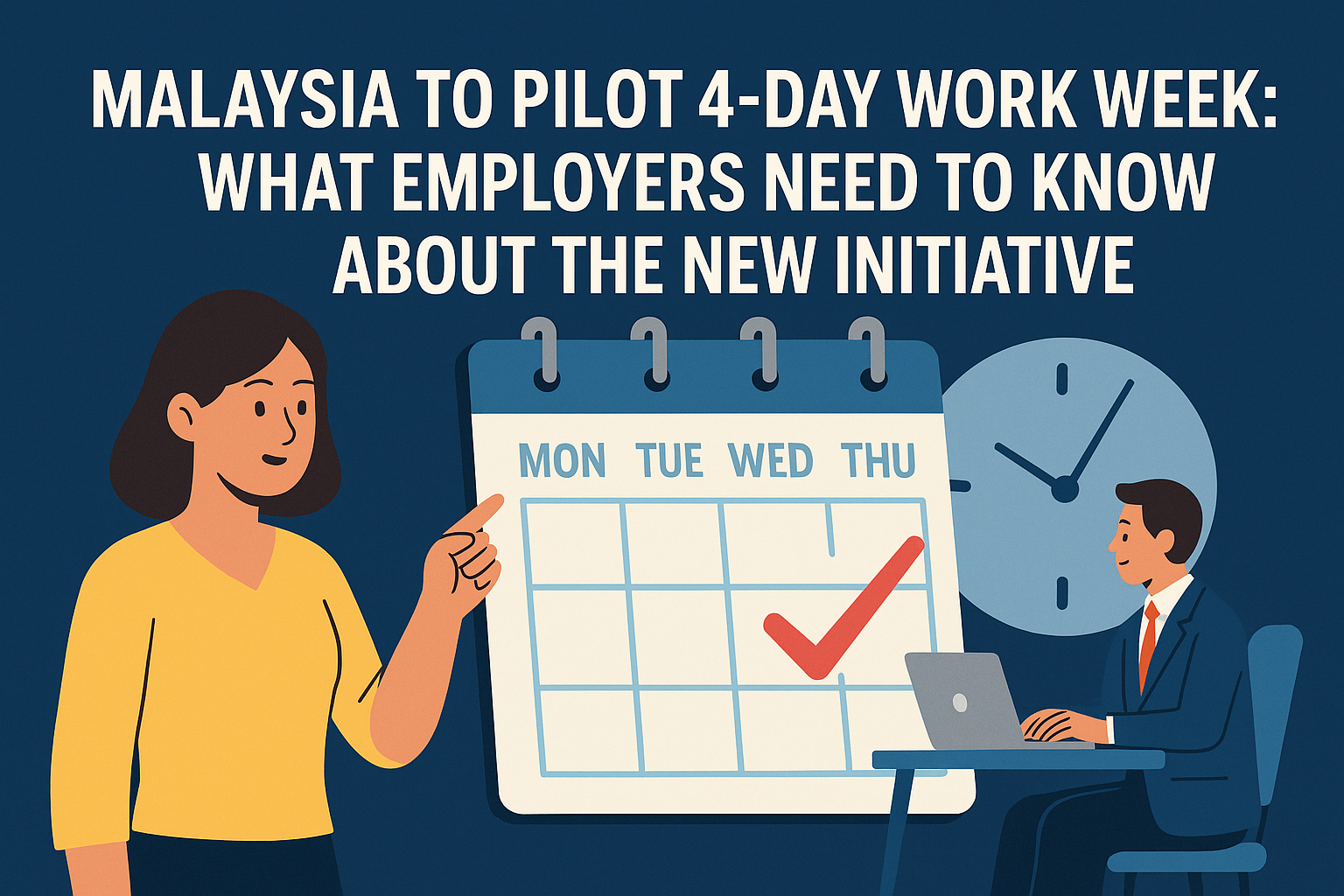In a landmark announcement this week, Malaysia’s Ministry of Human Resources has unveiled plans to launch a “Progressive Wage and Work-Life Balance Pilot Program,” which includes a structured trial for a four-day work week. The initiative, set to begin in the fourth quarter of 2025, is designed to study the impact of condensed work schedules on productivity, employee well-being, and business competitiveness in the Malaysian context.
This forward-thinking move signals a potential shift in the future of work in Malaysia. For business owners and HR managers, understanding the details of this pilot program is the first step in deciding whether this modern approach could be a strategic advantage for your company.
Key Details of the Pilot Program
While full guidelines are expected soon, here are the core details that have been announced:
- Objective: To assess the feasibility and benefits of a four-day work week model without a reduction in employee salaries. The primary goals are to boost productivity, improve employee work-life balance, and attract and retain top talent.
- Voluntary Participation: The program is voluntary for companies who wish to apply and participate. It is not a mandatory national change.
- Government Incentives: It has been reported that participating companies that meet specific criteria may be eligible for certain incentives, such as special grants or tax deductions, to help offset any initial transition costs.
- Targeted Sectors: The initial phase of the pilot program will likely focus on knowledge-based and professional service industries, including technology, marketing, and consulting, before a potential wider rollout.
The Pros and Cons for Your Business
Adopting a four-day work week is a major strategic decision. Business owners should carefully weigh the potential benefits against the challenges.
Potential Advantages:
- Talent Attraction & Retention: Offering a four-day week can be a powerful differentiator in a competitive job market.
- Increased Productivity: Global studies have often shown that shorter work weeks can lead to more focused and efficient work from employees.
- Improved Employee Well-being: A better work-life balance can reduce burnout, lower stress, and improve overall morale.
Potential Challenges:
- Operational Complexity: Restructuring schedules, especially for client-facing or operational roles, can be challenging.
- Maintaining Service Levels: Businesses must ensure that customer service and operational availability are not negatively impacted.
- Measuring Productivity: Shifting the focus from “hours worked” to “output delivered” requires a robust performance management system.
Is Your Business Ready for a 4-Day Week?
Before considering such a model, it’s crucial to have a strong operational foundation. Ask yourself:
- Do you have clear performance metrics? Can you measure your team’s output effectively?
- Are your processes efficient? Are there bottlenecks in your workflow that would be exposed by a shorter week?
- Is your financial data clear? Do you understand the cost implications of your current staffing model and the potential impact of any changes?
How SMONE Can Help You Prepare for the Future of Work
Major strategic decisions like adopting a new work model must be backed by solid data. Before you can measure the impact of a four-day week, you need a clear baseline of your current business performance.
SMONE’s Financial Reporting & Analysis and Payroll & HR Compliance services provide this critical foundation. We help you organize your financial data, understand your labor costs, and implement efficient processes. This clarity is the essential first step before embarking on any major operational transformation.
Contact us today to build the strong financial and administrative backbone your business needs to confidently embrace the future of work.
(Disclaimer)
This article is for general informational purposes and is based on recent public announcements. The details of the pilot program are subject to change. This does not constitute business or legal advice. Please refer to official statements from the Ministry of Human Resources for the most accurate information.


